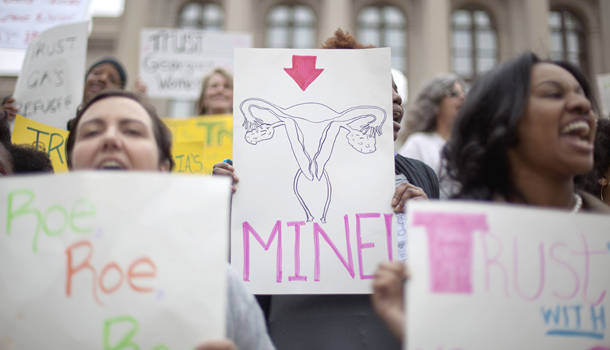
Voter Representation
Despite representing half of the American population, women — as a voting bloc — must tackle issues like a lack of registered voters and disenfranchising voter identification laws, similar to other minorities. McNamara says that, for the first time in 60 years, “we are seeing an assault of voting rights.”
Among many issues, the League of Women Voters is focusing on voter identification laws. To vote, McNamara has to renew her driver’s license — which she uses as identification in Georgia. To do so, she also needs her birth certificate and her marriage license to prove her identity and name.
She says that voter identification policies create unnecessary obstacles, specifically for elderly women. In fact, there are over 23 million women 65 years and older in America as of July 2011; there are around 17 million men in the same age bracket.
“Clearly, every time you’re asking a citizen — an otherwise eligible voter — to produce yet another piece of paper to prove that they are who they are and that they’re eligible to vote, women get impacted by that,” she says.

Deirdre Macnab, president of the League of Women Voters of Florida, makes comments during a news conference on June 6, 2012, in Orlando. //AP Photo/John Raoux
While McNamara and the League of Women Voters are working towards informing and supporting female voters, Gail Kitch is pushing to register unmarried women.
She is the Chief Operating Officer for the Voter Participation Center, a voting advocacy group which focuses on the “Rising American Electorate,” compromised of people of color, people under the age of 30 and unmarried woman.
Of the 55 million unmarried women in this group — which is disproportionately unregistered and underrepresented — around 39 percent are not registered, according to her.
Kitch says that economic hardship strongly affects these people. Women, in particular, can be distracted by daily minutiae to participate civically.
“I think part of what impels people to participate is when they feel the things that matter to them are not the focus of the conversation,” she says. “That’s what we’re seeing with women as well as the rest of the [Rising American Electorate].”
As an organization, the Voter Participation Center has registered around 800,000 voters this year — about 250,000 are unmarried women, according to Kitch.
“Our role is not focusing on who they choose to vote for and what their registered party is. Our commitment is to ensure that people are participating,” she says. “Making sure that women do understand the connection between being registered, voting in the fall and having their voices heard.”


